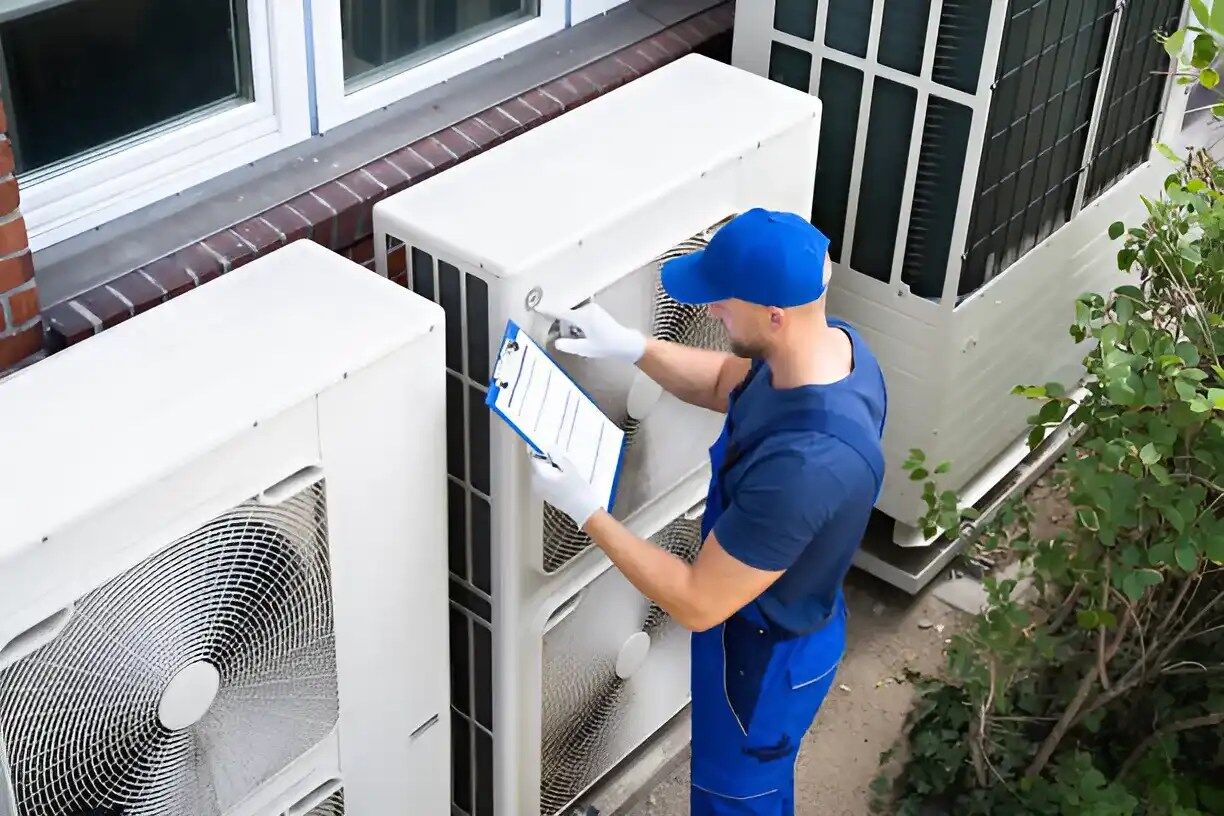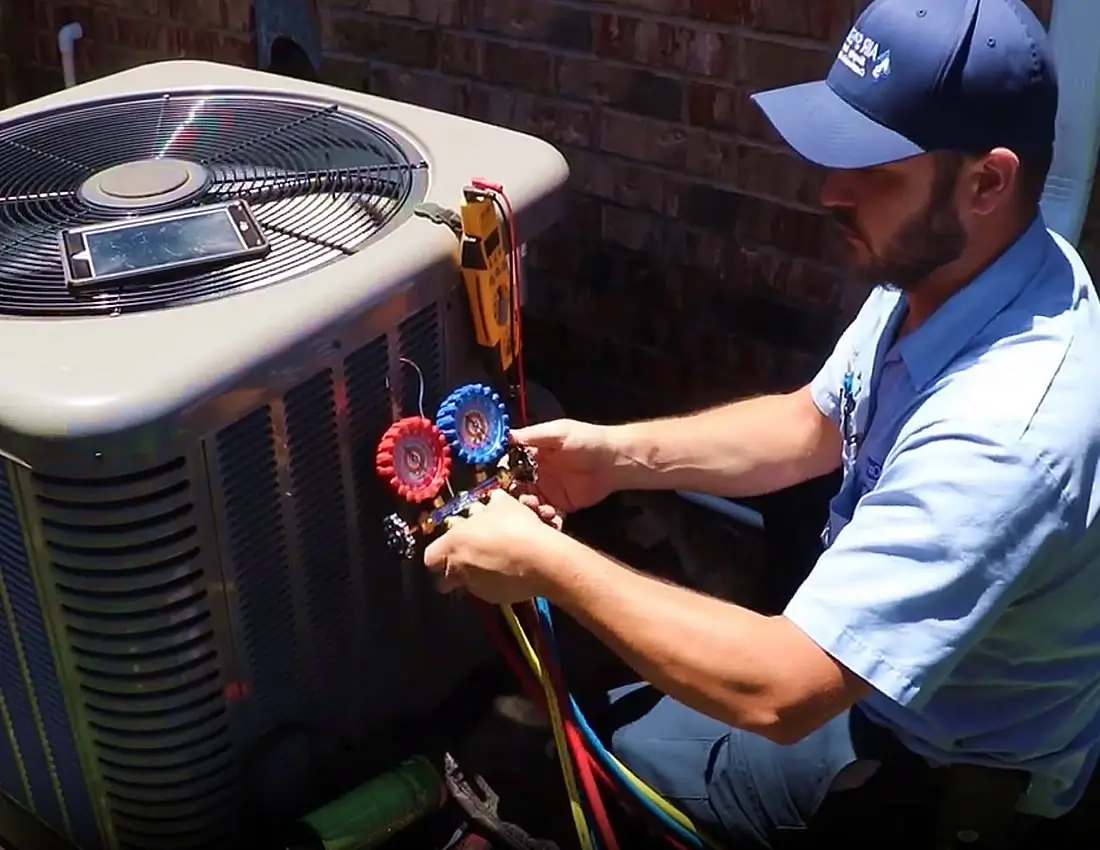How Ac Repair can Save You Time, Stress, and Money.
AC Repair Near Me: Expert Cooling System Restoration Guarantees Your Home Stays Comfortable All Year Round
Types of A/c Systems
When dealing with air conditioning repair, understanding the kind of air conditioning system you're dealing with can conserve time, cash, and irritation. Ever wondered why some units cool a room much faster than others? Or why specific systems seem to break down more often? Let's peel back the layers.
Central Air Conditioning
Air Conditioner Repair Near Me - The Facts
Envision a cool breeze streaming through a whole home, whispering comfort into every corner. Central air systems do exactly that. They use a network of ducts to distribute cooled air, relying on a compressor and condenser outside, paired click here with an evaporator coil inside. When this complex monster falters, pinpointing the issue can be like finding a needle in a haystack.
Split Systems

Split systems are a popular option for numerous homes-- part indoor system, part outside compressor. They offer versatility and effectiveness, but their double nature means repair can include either component. Have you ever heard a strange noise outside your house only to find the indoor unit isn't cooling? That's a traditional sign of a split system problem.
Examine This Report about Ac Repair Near Me
Window Units
These compact warriors fight summertime heat by fitting snugly into a window frame. They integrate all elements into a single box. Their simplicity often indicates less repair work headaches, but disregarding filters or permitting particles buildup can lead to decreased performance or breakdowns.
Ductless Mini-Splits
The Facts About Air Conditioning Repair Near Me Revealed
Ductless systems bypass ductwork totally, making them ideal for homes without existing ventilation. They're quiet, effective, and remarkably resistant. Yet, when repair work are required, service technicians must be adept at handling refrigerant lines and electrical connections-- no little feat.
Quick Referral Table
| Type | Secret Features | Typical Repair Work Issues |
|---|---|---|
| Central Air | Ductwork, whole-house cooling | Duct leakages, compressor failure |
| Split System | Indoor & & outside systems | Refrigerant leakages, fan motor problems |
| Window Unit | All-in-one, easy installation | Unclean filters, electrical faults |
| Ductless Mini-Split | No ducts, zoned cooling | Line leaks, sensor breakdowns |
Get This Report on Ac Fixing
Unwinding the A Lot Of Frequent A/c Predicaments
Have you ever wondered why your a/c all of a sudden stops cooling during a sweltering afternoon? One typical perpetrator is an unclean or clogged air filter. This sneaky bad guy restricts airflow, requiring your system to work overtime, which not just decreases performance but can also result in early breakdowns. Picture trying to breathe through a headscarf taken in dust-- it's exhausting!
Another regular misstep is refrigerant leakages. These unnoticeable leaks do not just decrease cooling power however can likewise harm the compressor, the heart of your air conditioning unit. How typically do you look for uncommon hissing noises or ice formation on the coils? Catching these signs early can save you from expensive repairs down the line.
Beyond the Essentials: Lesser-Known Issues
4 Simple Techniques For Ac Repair
Sometimes, the thermostat itself is the mischief-maker. Miscalibrated or faulty thermostats send mixed signals, triggering the air conditioner to cycle unpredictably. Ever knowledgeable your air conditioner switching on and off in quick succession? That's called short cycling, a tricky performance drainer that can break elements much faster than you 'd expect.
Electrical problems, such as worn electrical wiring or a malfunctioning capacitor, may hide beneath the surface area. AC Repair. These typically manifest as AC systems failing to start or suddenly shutting down. A professional eye knows to test these parts with precision tools, something a casual glance won't expose
Professional Tips for Diagnosing Common AC Concerns
The 2-Minute Rule for Ac Fixing
- Examine and replace air filters frequently-- every 1 to 3 months depending upon usage and environment.
- Listen for unusual noises like rattling or buzzing that could signify loose parts or electrical faults.
- Inspect the outdoor unit for debris or blockages that hamper air flow and trigger getting too hot.
- Look for frost accumulation on evaporator coils, a hint towards refrigerant issues or air flow limitations.
- Evaluate the thermostat settings and recalibrate if the temperature readings feel off.
Quick Recommendation Table: Symptoms & & Probable Causes

| Sign | Probable Cause | Specialist Suggestion |
|---|---|---|
| Warm air blowing | Low refrigerant or filthy coils | Tidy coils and look for leaks immediately |
| Brief biking | Thermostat problems or oversized unit | Change thermostat settings and seek advice from sizing guidelines |
| Unit won't begin | Electrical faults or capacitor failure | Test circuitry and change capacitors as required |
| Water leak | Obstructed drain line or frozen evaporator | Clear drain lines and check for coil icing |
DIY Air Conditioning Upkeep Tips
The Greatest Guide To Ac Repair
Ever observed your air conditioning unit sputtering like an old engine on a hot summer season day? Ignoring subtle signs frequently implies more than just a sweaty afternoon-- it's a start to unexpected a/c repair expenses. But what if you could capture those whispers before they turn into wails? Regular DIY upkeep can be your first line of defense.
Easy Actions to Keep Your AC Running Efficiently
Indicators on Air Conditioning Repair You Need To Know
- Clean or Change Filters: A clogged up filter is like attempting to breathe through a headscarf. Every 1-3 months, inspect and swap out your filters. It improves air flow and effectiveness, avoiding compressor pressure.
- Inspect the Condenser Coils: Dust and particles serve as invisible blankets smothering your system's cooling power. Gently brush or vacuum the coils, however avoid extreme chemicals that might wear down the metal.
- Check the Drain Line: When was the last time you peeked at your drain pan? A clogged drain can trigger water leaks and foster mold growth. Flushing it with a vinegar service regular monthly keeps the flow clear.
- Seal and Insulate: Are your ductworks whispering leakages? Sealing spaces with mastic or foil tape increases effectiveness and cuts down on uneven cooling.
Pro Tips Beyond the Fundamentals
- Step your system's voltage to catch subtle electrical wear before it sparks big issues.
- Listen for uncommon hums or rattles-- these acoustic breadcrumbs frequently signal loose parts or stopping working motors.
- Keep outside units shaded however ensure a minimum of 2 feet of clearance around them for ideal air flow.
Ask yourself: Are you hearing your air conditioning's quiet SOS or simply waiting on it to shout? Taking time for DIY a/c upkeep transforms reactive repair work into proactive care, saving sweat, stress, and yes, money.
Getting My Air Conditioning Repair Near Me To Work
Why Knowledge in AC Repair Matters
Picture this: your air conditioner system sputters and groans during a scorching afternoon, leaving you sweltering indoors. Would you rely on a beginner fumbling with delicate elements, or would you look for the reassurance of a expert AC service technician!.?.!? The complexities of modern-day air conditioning systems require precision and experience. A slight mistake can intensify a small breakdown into a costly catastrophe.
The Of Repair Air Conditioner Near Me
Hidden Intricacies Behind the Cool Breeze
Numerous underestimate the layers concealed underneath the streamlined exterior of an a/c unit - Repair Air Conditioner Near Me. From refrigerant leaks that silently drain performance to defective thermostats that misread temperatures, these concerns require more than a fundamental toolkit. Specialists have a keen eye for detecting issues that balance property owners overlook
Essential Tips for Selecting the Right Technician
The Basic Principles Of Ac Air Conditioner Repair
- Certification and Training: Validate credentials; a technician trained in the current heating and cooling technologies is important.
- Experience with Particular Systems: Not all air conditioning units are developed equal; find someone acquainted with your design's peculiarities.
- Diagnostic Method: Knowledgeable specialists utilize sophisticated tools-- like electronic leakage detectors and thermal imaging-- to determine hidden faults.
What to Anticipate from a Pro's Diagnostic Process
| Action | Function | Professional Insight |
|---|---|---|
| Visual Inspection | Identify obvious wear or damage | Look for deterioration or unusual noises-- a dead giveaway typically neglected |
| Pressure Checking | Identify refrigerant leaks | Subtle pressure drops can mean micro leakages undetectable to the naked eye |
| Electrical Testing | Ensure circuit integrity | Loose connections can simulate severe mechanical failures |
Some Known Facts About Air Conditioning Repair.
Why DIY Frequently Falls Short
Tempting as it is to play with your AC system, DIY repairs regularly miss the origin. Topping off refrigerant may temporarily cool your space however ignores leakages that aggravate over time. Expert specialists don't just patch symptoms; they hound the underlying mechanical and electrical faults that sap efficiency.
The Best Guide To Ac Fixing
Questions to Ask Before Employing
- What diagnostic tools do you utilize to recognize concerns?
- Can you describe the repair work procedure and anticipated outcomes?
- Are you acquainted with the refrigerants compatible with my unit?
- Do you follow safety protocols for handling electrical elements?